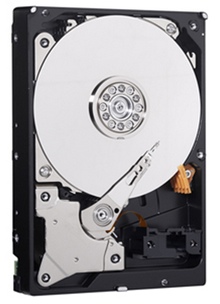SSDs set to grab over one third of PC storage solutions market by 2017: IHS

Shipments of SSDs — solid state drives — are set to soar over the coming years, to where they will account for more than one third of the PC storage solutions market by 2017, according to a new report by research firm IHS.

According to the report, the total worldwide shipments of SSDs in PCs is set to rise by a factor of seven by 2017, increasing from 31 million units in 2012 to 227 million units. Correspondingly, hard disk drives (HDD) shipments will decline to 410 million by 2017, down 14 percent from the 475 million units shipped in 2012.
Crunching the numbers a different way, this puts the compound annual growth rate for PC HDD shipments between 2012 to 2017 at -2.9 percent, compared to PC SSDs, which will enjoy an explosive growth of 48.0 percent over the same period.
"For SSDs, the major factors driving growth this year will be ultrabooks and other ultrathin notebook PCs, especially as Intel's upcoming Haswell processors bring about a robust combination of performance and efficiency for the super-thin computers," said Fang Zhang, analyst for storage systems at IHS. "In the coming years, ultrabooks and ultrathins — combined with appealing touchscreen displays and convertible form factors — are likely to become more compelling, as the machines attempt to lure consumers away from smartphones and tablets, boosting demand for SSDs used in these systems. Meanwhile, SSDs will become more attractive to PC makers and buyers alike, as costs decline for the NAND flash memory at the heart of the storage devices."
The balance between SSDs and HDDs is going to shift dramatically. While SSDs are predicted to grab 36 percent of the PC storage market in 2017 — up from just 6 percent in 2012 — the dominance of the HDDs will be eroded considerably, with its market share falling to 64 percent, down from 94 percent in 2012.
"The HDD industry is suffering the multilayered effects of a depressed market, resulting from a weak global economy, upgrades not being made for desktop and notebook PCs alike as replacement cycles get extended, and cannibalization by flashier devices like mobile handsets and tablets," wrote Zhang in a statement to ZDNet.
IHS also predicts that revenues from PC HDD are heading south, declining to $26.4 billion in 2013, a drop from last year's record high of $30.6 billion. (The previous cash boost was mainly down to higher average selling prices after the devastating floods in Thailand, which seriously affected hard drive production.)
By 2017, PC SSD industry revenue of $22.6 billion will be within a whisker of PC HDD revenues, which are estimated to be $23.5 billion.
But it's not all bad news for HDDs. Their cheaper price and higher storage densities make them better than SSDs in situations where a lot of data needs to be stored — the cloud being one such example. Also, technologies such as hybrid drives, which combine HDDs and SSDs into a single package, are also expected to keep HDDs relevant for the time being.
One type of drive that is at death's door is the optical disk drive (ODD), which is used for playing CDs and DVDs. For this year, ODD shipments are expected to amount to 262.6 million units, down from 287.4 million units shipped in 2012. At the same time, revenues are predicted to slip from $8.6 billion to $7.4 billion. By 2017, IHS is predicting that ODD shipments will shrink by a further 100,000 units compared to 2012, and that revenue will be further slashed by half.